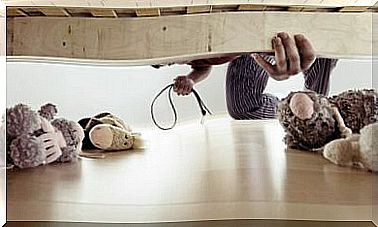Motivate Without Hurting Your Children

Motivate without hurting , is it possible? Most of the time when we try to motivate our children or correct certain bad habits and behaviors, we do it in the wrong way. Well, it is not about motivating through pressure or imposition.
If what you want is to help change or improve something in your child, you should know that you will never achieve it starting from a negative emotion. The secret is to always position yourself in positive emotion to act assertively. But, how do I get that positive emotion that allows me to motivate without hurting ?
Motivating or correcting a little one can become a difficult task. Although no one has taught us to do it, we must understand that an inappropriate way can hurt and resent you for the rest of your life. Therefore, it is convenient to know these tips to motivate without hurting them emotionally.
Positive emotion and assertiveness
These conditions come from healthy thinking, flexibility, understanding, and true help. Appealing to these techniques implies understanding the other and empathizing. You must put yourself in your child’s shoes, analyzing at every moment which is the most assertive path. Only then will your goal get better results.

Remember that assertiveness involves that set of qualities and skills that allow you to express your own criteria, defend your rights and proclaim your authenticity while respecting the rights of others and without inhibiting ourselves.
Sometimes we are overcome by anxiety and we say words that hurt the child, make him insecure and repress him. Fundamentally, you must learn to remain calm and use words that will cheer him up, make him feel good, and motivate him. A phrase change makes a difference and avoids negative feelings.
You must help them face failure. Although children’s wishes are simple, when they fail to satisfy them, they generate frustration, fear, and anger. If these are not severe, he will tolerate them, but if they are intense, he will lose control, externalizing them through less mature mechanisms (crying, hitting and screaming).
Motivating without “buts” is motivating without hurting
Our desire for perfection sometimes leads us to add a criticism or a judgment after praising our son. In the middle, a word appears that nullifies the force of our motivation, a “but” capable of dynamiting what was or could have been. Remember to eradicate the “but”, the “hopefully” and the “pity” from your vocabulary.
Consequently, that assessment automatically ceases to be motivating and soon becomes a recrimination. Therefore, its effect is null or negative, despite our good intention, since it consists of a conjunction whose meaning locates a defect and not an improvement.
Express your joy and congratulate him for that goal, for his good drawing, for his dancing skills, etc. It simply ponders and describes your strengths and abilities, helping you at every step to interpret the value and meaning of success.
If you need to correct mistakes, ask the necessary questions to evaluate them, but without detracting from his conquest, or choose another time to help him improve and seek strategies. Reaction to! This is the time and space in which you must enjoy your success together.

5 Recommendations to motivate without hurting
- Promote personal responsibility. If the child feels responsible for his own results, he will want to improve them.
- Avoid justifying or looking for excuses. It is useless to excuse the attitude of the teacher or the child’s insufficient time to have a correct performance in school or in those extra-curricular activities that they carry out.
- Share personal experiences. If you manage to share with your children those things you experienced in your childhood, be they successes or mistakes, they will understand that before each mistake, they can try again.
- Acknowledge their effort. You can do it in public or in private, and even whenever the child has a chance to listen to you. The important thing here is that he knows how proud they are to be his parents.
- Become their example. It is ideal to spend quality time with your children, because you cannot advise or correct if he does not appreciate a bond between you that exceeds the simple provision of food.









